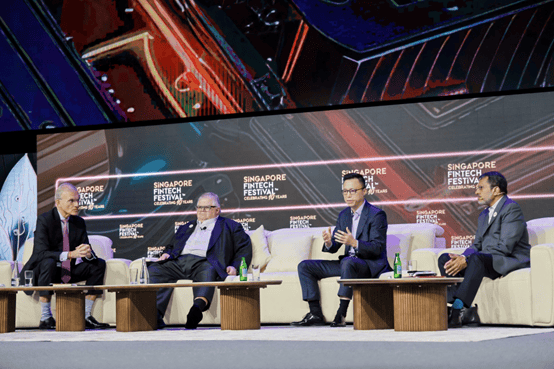
The Evolution of High-Frequency Trading with AI and Quantum Computing
Introduction
In the fast-paced world of finance, high-frequency trading (HFT) has become a dominant force, leveraging advanced technologies to execute trades at lightning speeds. Over the years, the landscape of HFT has witnessed a significant evolution, particularly with the integration of artificial intelligence (AI) and quantum computing. This blog post aims to delve into this evolution, exploring how AI and quantum computing have revolutionized high-frequency trading strategies, their impact on market dynamics, and the future prospects they hold.
Understanding High-Frequency Trading
High-frequency trading involves the execution of a large number of trades within fractions of a second, capitalizing on small price differentials in various financial instruments. Traditionally, HFT relied on sophisticated algorithms and ultra-fast hardware to gain a competitive edge in the market. However, with the advent of AI and quantum computing, the capabilities of HFT systems have reached new heights.
The Rise of Artificial Intelligence in High-Frequency Trading
Artificial intelligence has emerged as a game-changer in the realm of high-frequency trading. Machine learning algorithms, in particular, have enabled traders to analyze vast amounts of data with unprecedented speed and accuracy, identifying complex patterns and making split-second decisions. AI-powered trading systems can adapt to changing market conditions in real-time, optimizing trading strategies for maximum profitability.
Key Advantages of AI in High-Frequency Trading
- Predictive Analytics: AI algorithms can forecast market trends with remarkable accuracy, allowing traders to anticipate price movements and execute trades ahead of the curve.
- Risk Management: AI models can assess risk factors and adjust trading strategies accordingly, minimizing potential losses and maximizing returns.
- Algorithmic Trading: AI enables the development of sophisticated trading algorithms that can execute trades autonomously, without human intervention, based on predefined parameters.
- Market Sentiment Analysis: AI-powered sentiment analysis tools can analyze social media feeds, news articles, and other sources of information to gauge market sentiment and make informed trading decisions.
Quantum Computing: The Next Frontier in High-Frequency Trading
While AI has already made significant strides in high-frequency trading, the integration of quantum computing promises to usher in a new era of innovation and efficiency. Quantum computers leverage the principles of quantum mechanics to perform calculations at speeds exponentially faster than classical computers, unlocking new possibilities for HFT strategies.
Quantum Advantage in High-Frequency Trading
- Speed and Efficiency: Quantum computers can process vast amounts of data in parallel, enabling near-instantaneous analysis of market conditions and execution of trades.
- Optimization: Quantum algorithms can solve complex optimization problems more efficiently than classical algorithms, allowing traders to fine-tune their strategies for optimal performance.
- Enhanced Security: Quantum cryptography offers enhanced security measures, protecting sensitive trading data from potential cyber threats and attacks.
- Portfolio Diversification: Quantum computing enables the exploration of new trading strategies and asset classes, diversifying investment portfolios and mitigating risk.
Challenges and Considerations
Despite the tremendous potential of AI and quantum computing in high-frequency trading, several challenges and considerations must be addressed:
- Hardware Limitations: Quantum computers are still in the early stages of development, with limited scalability and stability.
- Regulatory Concerns: The use of AI and quantum computing in financial markets raises regulatory questions regarding transparency, fairness, and accountability.
- Ethical Implications: The automation of trading processes through AI raises ethical concerns regarding market manipulation, insider trading, and systemic risk.
- Data Privacy: The proliferation of AI-powered trading systems necessitates stringent data privacy measures to protect sensitive financial information from unauthorized access and misuse.
Future Outlook and Opportunities
Despite these challenges, the future of high-frequency trading with AI and quantum computing appears promising. As technology continues to advance and regulatory frameworks evolve, we can expect to see further integration of AI and quantum computing in financial markets. This presents new opportunities for traders to gain a competitive edge, enhance market liquidity, and drive innovation in the global economy.
The Intersection of AI and Quantum Computing in High-Frequency Trading
The convergence of AI and quantum computing holds immense potential for high-frequency trading. AI algorithms can be enhanced by quantum computing capabilities, enabling even faster and more efficient analysis of market data. Moreover, quantum machine learning algorithms can unlock new insights and patterns in financial data that were previously inaccessible with classical computing methods.
Opportunities for Innovation
- Quantum Machine Learning: Researchers are exploring the application of quantum machine learning algorithms in high-frequency trading, aiming to develop more accurate predictive models and trading strategies.
- Quantum Encryption: Quantum cryptography offers the promise of secure communication channels for high-frequency trading platforms, protecting sensitive financial information from cyber threats.
- Quantum Annealing: Quantum annealing techniques can be used to solve complex optimization problems inherent in high-frequency trading, enabling traders to achieve better results with fewer computational resources.
- Quantum Financial Modeling: Quantum computers can simulate complex financial models and scenarios more accurately, providing traders with valuable insights into market dynamics and potential risks.
FAQs
Q: How does AI improve high-frequency trading strategies? A: AI enables high-frequency trading systems to analyze vast amounts of data, identify complex patterns, and make real-time trading decisions with speed and accuracy.
Q: What is the role of quantum computing in high-frequency trading? A: Quantum computing offers exponential speed and efficiency gains, allowing traders to process market data and execute trades at unprecedented speeds.
Q: Are there any regulatory concerns associated with AI and quantum computing in high-frequency trading? A: Yes, the use of AI and quantum computing in high-frequency trading raises regulatory questions regarding transparency, fairness, and ethical considerations.
Conclusion
The evolution of high-frequency trading with AI and quantum computing represents a paradigm shift in the world of finance. As technology continues to advance, traders must adapt to these changes and embrace innovative strategies to stay ahead of the curve. While challenges remain, the potential benefits of AI and quantum computing in high-frequency trading are undeniable, promising to reshape the future of financial markets in profound ways. The convergence of AI and quantum computing holds immense potential for unlocking new opportunities and driving further innovation in high-frequency trading. As researchers and practitioners continue to explore the possibilities, the future of HFT with AI and quantum computing remains bright.


